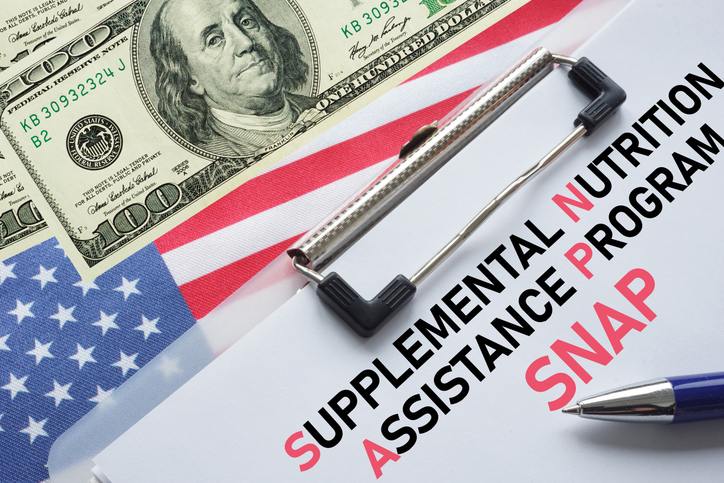Maryland Families Could Lose $150 A Month Under New SNAP Benefit Cuts

Millions of Americans who rely on food stamps are bracing for reduced benefits, or losing access to the program altogether, under new restrictions tied to the Republicans’ sweeping tax and spending law.
According to estimates from the Congressional Budget Office, about 2.4 million people, roughly 6% of enrollees, could be cut from the Supplemental Nutrition Assistance Program (SNAP) each month because of stricter work requirements and other policy changes.
Even more households will see smaller monthly payments. The Urban Institute projects that up to 22.3 million families nationwide could either lose SNAP eligibility or face reduced benefits once the changes are fully implemented.
About 42 million individuals across 22.3 million households used SNAP in 2023, U.S. Department of Agriculture (USDA) data shows. While the program is federally funded, states are responsible for administration, splitting the costs with the federal government. Some states, including Pennsylvania, have already begun applying the new rules, such as tougher work mandates that take effect on November 1.
In Maryland, the impact will be especially sharp. A typical household could see about $150 less per month in SNAP benefits, according to state-level estimates.
The cuts come at a difficult moment for many families. Grocery prices remain high, and poverty rates have increased for both seniors and Black Americans, recent Census Bureau data shows. Anti-hunger advocates warn that reduced benefits will worsen food insecurity, undermining one of the country’s most effective safety nets. SNAP was credited with lifting 3.6 million people out of poverty last year alone.
“We are deeply concerned that the cuts to SNAP will lead to an increase in hunger,” said Carolyn Vega, associate director of policy analysis for Share Our Strength, an anti-hunger nonprofit. “Households don’t have extra wiggle room, so every SNAP dollar is vital for extending the food budget.”
Tracking how these changes affect food insecurity may soon become harder. On September 20, the USDA announced it would discontinue its annual Household Food Security Report, which has long served as the nation’s benchmark for measuring access to healthy food. The agency said the report was “redundant, costly, politicized, and extraneous,” claiming it contributed to “fear mongering.”
Advocates strongly disagree. “The USDA puts out the only report on food insecurity,” Vega said. “Scrapping it makes it harder to measure the real impact of the new law. It feels like they don’t want the results to be seen.”
Maryland Families Could Lose $150 A Month Under New SNAP Benefit Cuts was originally published on wolbbaltimore.com







